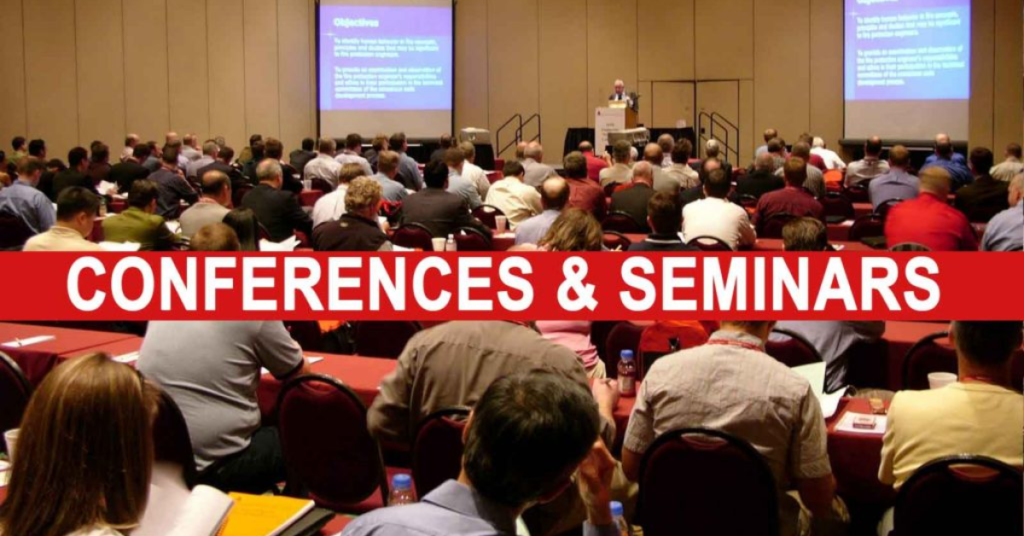Academic conferences have become vital events in the higher education landscape, acting as platforms where scholars, researchers, and students converge to share insights, discuss ideas, and foster collaboration. These gatherings extend beyond mere presentations; they significantly influence academic discourse, facilitate the dissemination of research findings, and cultivate a sense of community among participants. This article provides an in-depth exploration of the significance, structure, and impact of university academic conferences, serving as a comprehensive guide for students, faculty, and anyone interested in understanding their dynamics.

Understanding the Purpose of Academic Conferences
Academic conferences are organized with several key objectives in mind:
- Knowledge Dissemination: They offer researchers a venue to present their findings to a broader audience. This exchange of information is crucial for advancing knowledge across various fields.
- Networking Opportunities: These events enable participants to meet peers, industry experts, and potential collaborators, fostering connections that can lead to future research partnerships and career advancements.
- Feedback and Peer Review: Presenting at a conference allows scholars to receive constructive feedback from their peers, which is invaluable for refining research before publication.
- Professional Development: Conferences often feature workshops, panel discussions, and keynote speeches, contributing to the professional growth of attendees by exposing them to the latest trends, methodologies, and technologies.
- Showcasing Innovations: Universities frequently utilize conferences to highlight groundbreaking research and innovations, elevating their profile while inspiring students and faculty.
Structure of Academic Conferences
Academic conferences typically adhere to a structured format designed to facilitate interaction and learning. Here’s a breakdown of the common elements you can expect at these events:
1. Keynote Speeches
Keynote addresses are delivered by prominent figures in the field and set the tone for the conference. These speeches provide insights into current trends and future directions, often sharing personal research experiences and visions that inspire deeper engagement with the subject matter.
2. Paper Presentations
Researchers present their papers during sessions, which are usually organized thematically. Each presentation is followed by a Q&A segment, promoting dialogue and critical thinking and fostering a deeper understanding of the discussed topics.
3. Panel Discussions
Panels consist of multiple speakers addressing a particular topic from various perspectives. This format encourages lively exchanges of ideas and often includes audience participation, making it an engaging way to explore complex issues.
4. Workshops
Workshops are hands-on sessions designed to teach specific skills or methodologies. These interactive sessions enable participants to apply what they learn in real-time, enhancing their understanding of practical applications.
5. Poster Sessions
Poster sessions provide a visual representation of research. Researchers display their findings on posters and engage with attendees in a more informal setting. This format effectively encourages discussions and networking.
6. Social Events
Conferences often include social events, such as receptions or dinners, which allow attendees to network in a relaxed environment. These gatherings can be instrumental in forming connections that extend beyond the conference.
The Impact of Academic Conferences on Research and Academia
Academic conferences significantly influence the research landscape and academic culture in several ways:
1. Advancing Knowledge
By facilitating the sharing of innovative ideas and research findings, conferences contribute to the collective knowledge of a field. They act as catalysts for new research directions and methodologies, often leading to collaborative projects.
2. Fostering Collaboration
Conferences create a space for researchers to connect and collaborate. Networking can lead to co-authorship on papers, joint grant applications, and resource sharing, enhancing research quality and impact.
3. Enhancing Visibility
For early-career researchers and graduate students, presenting at conferences can increase their visibility within their academic community. This exposure can lead to job opportunities, invitations to publish in journals, or participation in future research projects.
4. Contributing to Professional Development
Attending conferences helps individuals stay updated on the latest advancements in their fields. Workshops and discussions provide essential skills and knowledge crucial for career development.
How to Prepare for an Academic Conference
For those considering attending or presenting at an academic conference, thorough preparation is key. Here are some essential tips:
1. Choose the Right Conference
Research various conferences in your field. Consider factors such as the conference’s focus, the audience, and networking opportunities. Select one that aligns with your research interests and career goals.
2. Prepare Your Presentation
If you are presenting, craft a clear and engaging presentation. Ensure your content is well-organized and tailored to your audience. Rehearse your delivery to build confidence and address timing.
3. Engage with Others
Take advantage of networking opportunities. Approach other attendees, participate in discussions, and attend social events. Building relationships can lead to valuable collaborations and friendships.
4. Follow Up
After the conference, reach out to new connections via email or social media. Express your appreciation for their insights and explore potential collaborations or discussions about shared interests.
Conclusion
University academic conferences serve as essential venues for knowledge exchange, networking, and professional development. They significantly shape the future of research and academia by fostering collaboration and encouraging innovation. As scholars and students navigate their academic journeys, participating in these conferences can provide invaluable experiences that extend beyond the event itself. Whether you are presenting your research or simply attending to learn and network, the impact of academic conferences is profound, offering a unique opportunity to engage with the global academic community. Embrace the chance to connect, collaborate, and contribute to the ever-evolving landscape of knowledge.